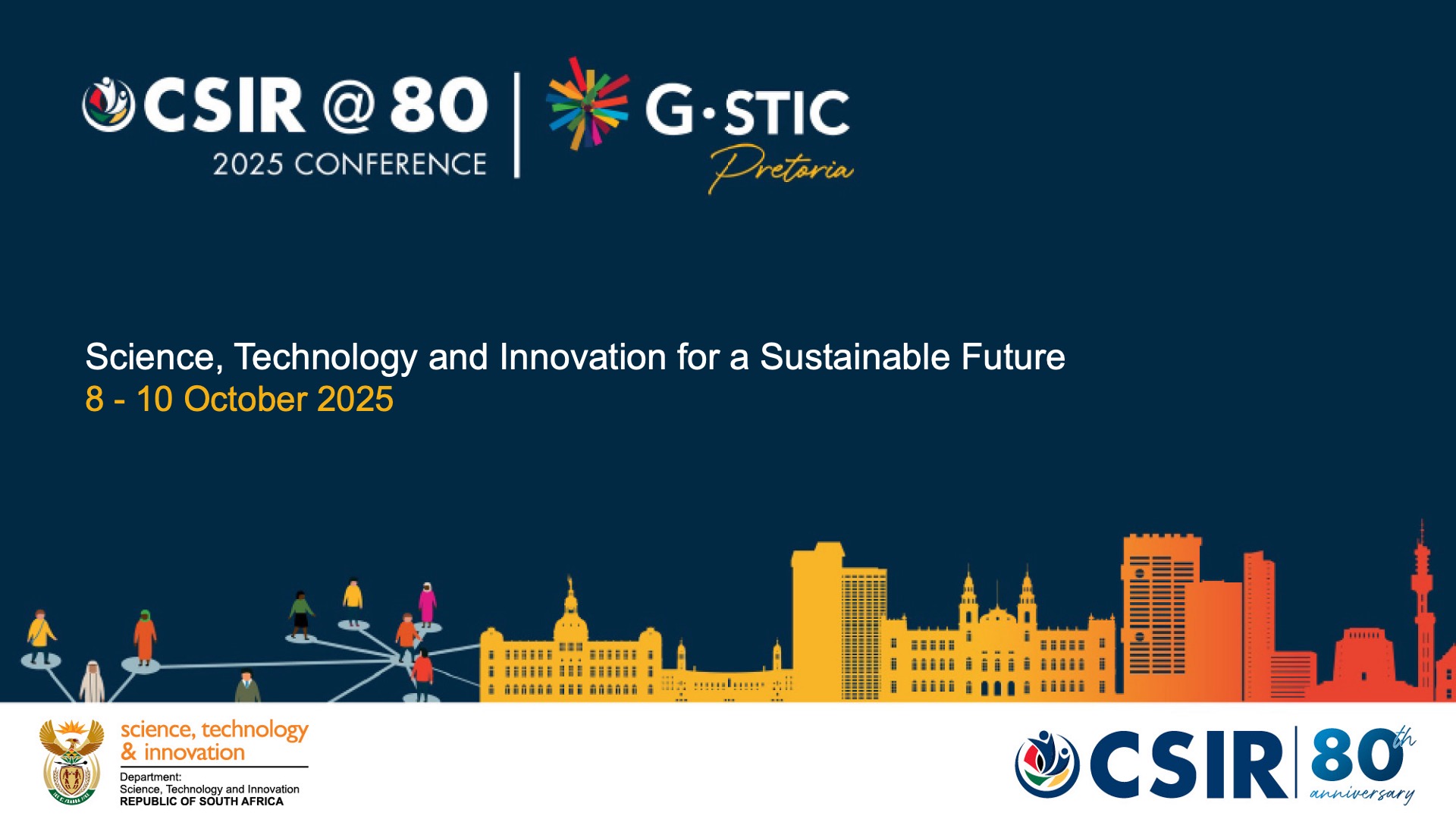News
As the global trend towards clean energy accelerates, countries are urgently seeking reliable, cost-effective battery technologies to support the integration of renewables, electric mobility and grid stability. While lithium-ion batteries are being adopted rapidly, growing geopolitical risks, the scarcity of critical minerals, and environmental concerns are exposing serious vulnerabilities in global supply chains.
In a landmark moment for South African innovation, AdNotes was awarded the prestigious SMME Award at GovTech 2025 (held from 8 to 10 September 2025); a victory made possible through its strategic use of the Council for Scientific and Industrial Research (CSIR)-developed Secondary Geolocation Spectrum Database (S-GLSD) technology.

The theme for the 2025 CSIR@80 | G-STIC Conference is “Science, Technology and Innovation for a Sustainable Future”. This aligns with a decision made six years ago by the *global community to adopt Agenda 2030 and its associated Sustainable Development Goals (SDGs) - an ambitious global action programme aimed at steering the world towards a more economically sustainable, socially equitable and environmentally sound development path. Read more.
In recognition of International Coastal Cleanup Day, marine experts from the CSIR’s Coastal Systems and Earth Observation research group rolled up their sleeves for a local cleanup at Blue Lagoon beach in Durban on Friday, 19 September 2025. The popular recreational spot, frequented by birdwatchers, fishermen and nature lovers, became the focus of the team’s efforts to highlight and reduce marine litter.
“Not only did we start our cleanup a day earlier, but we also organised our own independent effort,” explains senior researcher Aadila Omarjee.
The CSIR now boasts the longest 2D wave flume facility in the southern hemisphere. These wave facilities are used to generate predefined wave conditions to study wave-structure interactions and the performance of coastal structures under design and extreme storm conditions.
Zanzibar’s most ecologically and culturally vibrant coastal zones is the iconic Paje Beach where turquoise waters meet vital marine ecosystems. Here, scientists, conservation planners and regional stakeholders gathered for a hands-on field engagement like no other.
At the inaugural CNBC Africa Artificial Intelligence (AI) Summit, held on Thursday, 14 August 2025 at the Indaba Hotel in Johannesburg, South Africa, the spotlight turned to the intersection of science, ethics and innovation. Among the distinguished speakers was Dr Reevana Balmahoon, Research Group Leader for Artificial Intelligence and Extended Reality (AI and XR) at the Council for Scientific and Industrial Research (CSIR).
The African Laser Centre, a flagship initiative championed by the New Partnership for Africa’s Development and funded by the Department of Science, Technology and Innovation, invites you to respond to a call for proposals for the 2026 African Laser Centre Research Collaboration Programme. Hosted and managed by the Council for Scientific and Industrial Research, the programme aims to foster research partnerships between South African researchers and their counterparts across Africa.
The Council for Scientific and Industrial Research (CSIR) is inviting proposals for the Rental Pool Programme (RPP) for the 2026/27 financial year. Funded by the Department of Science, Technology and Innovation and managed by the CSIR, this initiative aims to stimulate and expand laser and laser-based applications research within South Africa's research community. The programme’s objective is to boost the National System of Innovation and nurture the next generation of photonics technology researchers.

